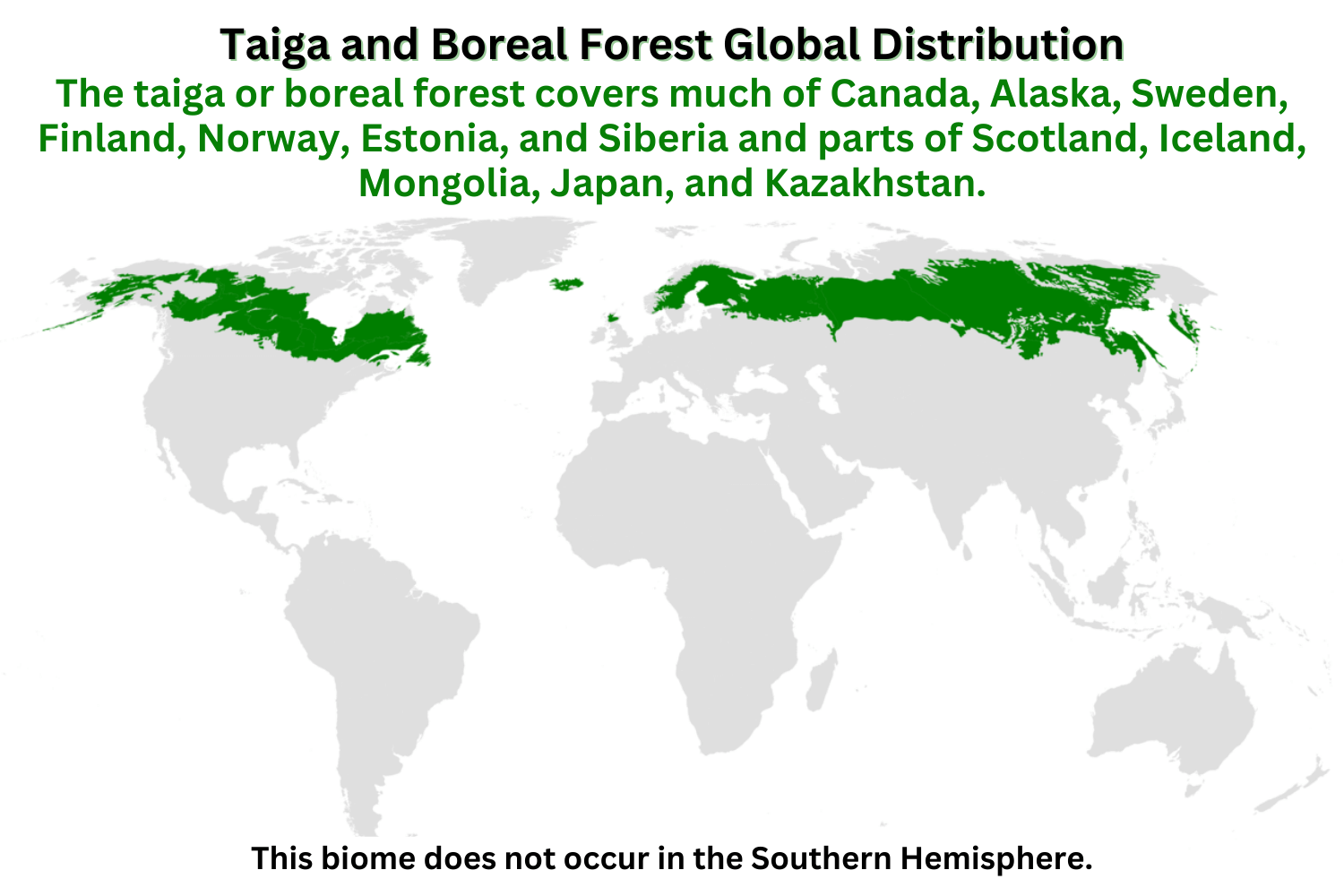Rapid Fire
Boreal Forests
- 23 Jan 2025
- 2 min read
A study reveals that nearly half of the world’s boreal forests are undergoing major changes due to climate change, increasing wild fire risks and altering their carbon sink role.
- Key Findings of the Study: Boreal forests are warming four times faster than the global average.
- Boreal forests are transitioning to an open state (with sparse tree cover), reducing their carbon storage capacity and increasing wildfire risks, with tree density decreasing from south to north.
- Permafrost thawing may release significant soil carbon, further complicating carbon storage projections.
- Boreal Forests: The boreal forest (or "taiga") is the world's largest land biome, covering 30% of global forest area and 10% of Earth's land surface.
- The boreal ecozone principally spans eight countries in the Northern Hemisphere (Canada, China, Finland, Japan, Norway, Russia, Sweden, and the US).
- Boreal forests are dominated by coniferous trees like pine, spruce, and fir, along with some broadleaf species such as poplar and birch. They thrive in high-latitude environments.
- Contains more surface freshwater than any other biome, significantly impacting northern oceans and global climate.
- Boreal regions provide over 33% of lumber and 25% of paper exports, playing a key role in climate regulation and acting as a major carbon reservoir, rivaling tropical forests.
Read more: Types of Forests in India







